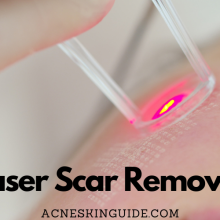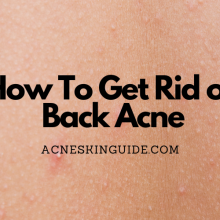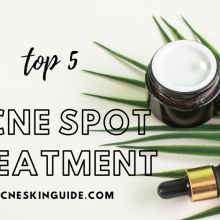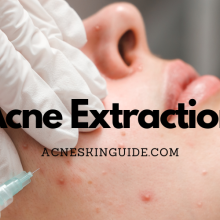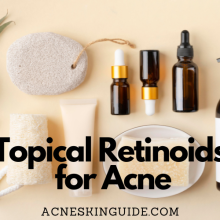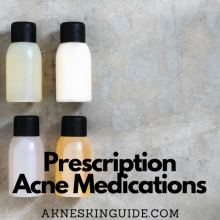Birth Control for Acne – How It Works and Which Types Are Best | AcneSkinGuide
Summary of Birth Control for Acne
Birth control can be an effective treatment for hormonal acne in women by regulating androgen levels that overstimulate oil production and clog pores. Combination birth control pills containing estrogen and progestin are usually the most successful formulation, though other options like the patch, ring, and progestin-only methods may help some women.
Realistic expectations are important, as many experience an initial acne “purge” before seeing improvement that can take 6-9 months. Benefits like reducing PMS symptoms are possible, but side effects like bleeding, mood changes, and increased health risks must be weighed. Birth control alone may not control severe acne and is often combined with other treatments. Acne can potentially return after discontinuing birth control as hormones shift again. Working closely with a dermatologist is key to find the right treatment approach, as every woman’s experience is unique.

Birth Control for Acne – A Comprehensive Guide
The Hormonal Link to Acne Breakouts
For many women, hormonal fluctuations are a major contributing factor to acne breakouts. As androgen hormones like testosterone increase, they can overstimulate oil glands, leading to excess sebum production that clogs pores and causes pimples. This is why acne often flares up around menstrual cycles.
How Birth Control Regulates Hormones for Acne
Fortunately, birth control methods can help regulate those hormone levels and reduce acne. By introducing different synthetic hormone combinations, birth control essentially tricks the body into lowering androgen production. This anti-androgen effect is why birth control is such an effective acne treatment option for many women with hormonal acne.
Combination Birth Control Pills
There are several different birth control methods that can be used to treat acne. Combination birth control pills contain synthetic estrogen and progestin hormones. Formulations with higher estrogen concentrations like Ortho Tri-cyclen, Estrostep, and Yaz tend to be most effective against acne by suppressing androgen production. However, pills with the progestin drospirenone like Yaz may carry an increased risk of blood clots compared to other birth control pills.
Progestin-Only Options
The birth control shot (Depo-Provera), implant (Nexplanon), and mini-pills are progestin-only options that can help reduce acne in some women. However, they tend to be less effective than combination methods. Some women experience a temporary acne flare when starting progestin-only birth control before it improves.
Patches and Rings
The Xulane patch and NuvaRing vaginal ring steadily release synthetic estrogen and progestin hormones to reduce androgen levels in a similar way to combination birth control pills.
Finding the Right Formulation
Most dermatologists recommend trying combination birth control containing estrogen first, as these tend to have the greatest success rates against acne. However, it may take some trial and error to find the right formulation for your individual body chemistry.
The Acne “Purging” Period
It’s also important to have realistic expectations when starting birth control for acne. Many women experience an “acne purging” period during the first few months where their skin gets worse before it gets better. This is a temporary reaction as hormone levels shift and oil glands adjust. Sticking with the treatment plan is important, as it can take 6-9 months to see full results.
Additional Benefits of Birth Control
In addition to helping clear acne, birth control can provide other benefits like relieving PMS symptoms, reducing cramps, regulating irregular periods, and preventing pregnancy.
Potential Downsides and Risks
But there are also potential downsides to consider. Common side effects include breast tenderness, nausea, headaches, weight changes, mood swings, and breakthrough bleeding. More serious risks include increased risk of blood clots, stroke, heart attack, liver issues, and certain types of cancer for some women, especially if you are overweight or smoke. Your overall health profile determines whether hormonal birth control is safe for you.
Considering Other Health Conditions
It’s important to work closely with your dermatologist and gynecologist to weigh the pros and cons of using birth control to manage your acne, particularly if you have other conditions like polycystic ovarian syndrome (PCOS) or diabetes that affect insulin resistance and hormones.
Combined Treatment Approaches
For some women, especially those with very severe or cystic acne, birth control alone may not be enough. It’s often most effective when combined with other treatments like topical retinoids, oral antibiotics, or Accutane.
Acne May Return After Discontinuation
And while birth control can be highly successful for hormonal acne, it’s not a permanent cure. If you decide to stop taking it, there’s a chance your acne could return as your hormone levels shift back. Many women transition to non-hormonal treatments or topicals to manage any acne that comes back after discontinuation.
Positive Success Story
Jackie, 28, dealt with hormonal acne for years before finally finding relief with birth control. “I tried everything – face washes, creams, supplements – but nothing worked because the root cause was my crazy hormones. My dermatologist put me on a birth control pill with drospirenone and my skin finally cleared up within 9 months. I’ve been able to manage any stray pimples with a topical retinoid.”
Negative Experience
On the other hand, Samantha, 24, had a different experience. “Birth control gave me constant spotting and mood issues, so I stopped after 6 months when my acne didn’t really improve. I’ve had better luck managing it with spironolactone and using a fiber supplement to reduce excess androgens.”
Finding the Right Approach
Every woman’s experience with using birth control for acne is different. It simply comes down to your individual needs and the root causes behind your breakouts. Discussing all the options with a dermatologist is key to developing the most effective treatment plan for you.
Perspective and Commitment Required
While they may not be a cure-all, hormonal birth control methods can be powerfully effective for getting stubborn acne under control – as long as you understand their limitations and work closely with your doctor to manage any downsides. With patience and the right hormonal combination, you could finally wave goodbye to those frustrating pimples for good.
FAQs and Answers
Can birth control make acne worse before it gets better?
Yes, birth control can sometimes make acne worse before it gets better. This temporary phenomenon is often referred to as the “birth control acne purge” or “acne purging period.”
When you start taking birth control pills or other hormonal birth control methods, it causes a shift in your hormone levels. This hormone disruption can lead to an acne flare or breakout in some women during the first few months of use.
There are a couple main reasons this purging can occur:
1) The introduction of new hormones can increase shedding of cells and oil production initially before it stabilizes, leading to more clogged pores.
2) Androgens like testosterone that are reduced by birth control can cause existing clogs and microcomedones under the skin to be pushed out as inflamed pimples.
The acne purging period is usually temporary, lasting anywhere from 4-12 weeks on average as your body adjusts to the new birth control hormones. After this initial breakout phase, you should start seeing improvement as the hormones take effect to reduce oil production.
It’s important to be patient and stick with the birth control through the purge, as discontinuing it can prevent you from seeing the full acne-clearing benefits down the road. Your dermatologist can recommend techniques to help manage the purging breakouts.
So in summary – yes, worsened acne is a potential temporary side effect when first starting birth control, but it should eventually lead to clearer skin for most women if they can get through that initial purge period.
Are certain birth control types better for specific acne severities?
Yes, certain types of birth control tend to be better suited for specific severities of acne.
For mild to moderate acne:
- Combination birth control pills with lower doses of estrogen and progestin are usually recommended first. These include formulations like Ortho-Cyclen, Desogen, and Yaz.
- The progestin-only minipill can also help mild acne for some women.
For moderate to severe acne:
- Combination pills with higher estrogen doses like Ortho Tri-Cyclen tend to be most effective as the estrogen better suppresses testosterone levels.
- If acne persists, combining the birth control pill with an anti-androgen medication like spironolactone is often the next step.
For very severe, cystic acne:
- Birth control alone is less likely to provide full clearance.
- It may need to be combined with other treatments like oral isotretinoin (Accutane), which directly shrinks oil glands.
- The birth control helps enhance the effects of Accutane and prevents excessive flaring of hormonal acne.
In general, progestin-only methods like the mini-pill, implant, and shot are not as effective for moderate or severe acne compared to combination birth control pills. The combination of estrogen and specific progestins provide the best anti-androgen effects.
Your dermatologist and gynecologist can evaluate your acne severity and determine if birth control alone may be enough, or if you need a stronger treatment plan incorporating other systemic medications along with hormonal birth control.
How does birth control interact with other acne treatments?
Birth control can interact and be combined with other acne treatments in several ways:
With Topical Retinoids/Retinols
There are no major interactions, so birth control pills can be safely used alongside topical retinoids like tretinoin cream or retinol serums. The retinoids help unclog pores while birth control regulates hormones.
With Benzoyl Peroxide
Again, no drug interactions. Benzoyl peroxide targets the acne-causing bacteria, so it can be a nice complementary treatment along with hormonal birth control.
With Oral Antibiotics
Some antibiotics like tetracycline can potentially make birth control less effective by decreasing absorption. Your doctor may recommend taking the medications at different times.
With Spironolactone
This anti-androgen medication is commonly prescribed together with birth control for hormonal acne. It blocks male hormones from triggering oil production.
With Isotretinoin (Accutane)
Birth control must be taken simultaneously with Accutane due to the high risk of birth defects. The birth control prevents pregnancy during this course of treatment.
With Sulfur/Sodium Sulfacetamide
No interactions, so these topical acne treatments can be used concurrently with oral contraceptives.
With Salicylic Acid
No major interactions with salicylic acid cleansers or leave-on products when taking birth control.
The key is making sure your dermatologist and gynecologist are aware of all medications you are using to check for potential interactions. With proper monitoring, birth control can be safely combined with many other acne treatments for an enhanced effect.
Are there ways to help birth control work better for acne?
Yes, there are several things you can do to help maximize the effects of birth control for treating acne:
- Be patient and stick with it. It can take 3-6 months for birth control to fully regulate hormone levels and see clearance. Sticking to the regimen during the initial “purge” period is important.
- Adopt an acne-friendly diet. Eating foods that are low in dairy, sugar, and unhealthy fats may help reduce inflammation and oil production. Focus on whole foods like vegetables, fruits, whole grains, and lean proteins.
- Take a probiotic. Some research shows probiotics can help improve skin by reducing inflammation associated with acne. Look for strains like lactobacillus.
- Use a zinc supplement. Zinc helps regulate hormone levels and has anti-inflammatory properties that can enhance birth control’s acne benefits.
- Manage stress. High stress can worsen acne by increasing cortisol levels. Engaging in stress relief activities like yoga or meditation may help.
- Don’t pick or pop pimples. This can worsen acne and cause further inflammation and scarring.
- Use non-comedogenic skin care products. Avoid pore-clogging cosmetics and heavy oils/creams while your skin adjusts to the birth control.
- Add a topical treatment. Using benzoyl peroxide or retinoids alongside birth control can provide an added acne-fighting boost.
- Be diligent about exercise and staying hydrated to support healthy skin renewal and oil balance.
Making these lifestyle adjustments can help your body better respond to the hormonal changes from birth control for improved acne outcomes.
Why does acne sometimes return after stopping birth control?
Acne can sometimes return or flare up after stopping birth control for a few key reasons:
- Hormone level shifts
Birth control works by regulating and suppressing androgen hormones like testosterone that can overstimuate oil glands and clog pores. When you stop taking the birth control, your natural hormone levels are no longer being regulated and androgens can spike again, revving up oil production and acne. - Post-birth control hormonal imbalances
After being on birth control for months or years, the body can experience a sort of “hormone imbalance” once you stop taking the synthetic hormones. It may take several cycles for your natural hormone levels to restabilize, leading to acne breakouts in the interim. - Suppressed acne returns
For some women, birth control doesn’t actually resolve underlying acne – it just suppresses it temporarily. So when you stop taking it, the original hormonal acne triggers resurface without the birth control regulating things. - Increased androgens after discontinuation
There’s evidence that for certain women, androgen levels can actually rebound higher than baseline after quitting birth control, causing an acne flare.
The good news is acne that returns after stopping birth control is usually just temporary as hormone levels re-regulate. Working closely with a dermatologist can help manage post-birth control acne through this transitional period with other treatments like topicals, spironolactone, or a low-androgen birth control if needed.
The key is being prepared for a potential breakout and having a good treatment plan before discontinuing hormonal birth control to get any recurring acne under control quickly.

